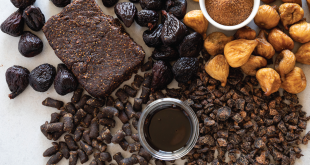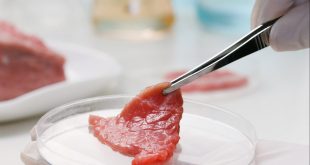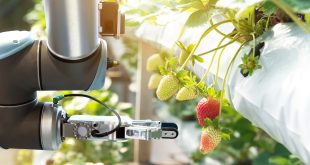A lowly mushroom is taking on the long-established synthetic food preservatives industry thanks to the work of Dr. Tanzina Huq, who won the Mitacs Outstanding Entrepreneur Award this past May. The Fredericton-based startup Chinova Bioworks, which she co-founded in 2016, produces an all-natural preservative based on mushroom fibre.
Chinova Bioworks is the first to introduce natural mushroom chitosan fibre as an all-natural preservative ingredient for food, beverages and cosmetics. Working out of the University of New Brunswick, Huq’s lab uses locally sourced mushrooms from farms in Nova Scotia and New Brunswick to produce her unique preservative, a product the company has named Chiber mushroom extract.
The extract works by destroying bacterial cell walls in a wide range of bacteria, yeasts, moulds and pathogens. It’s an effective anti-microbial and anti-oxidant, fully soluble and customizable to target specific spoilage micro-organisms. It can’t be seen, smelled or tasted on food or in beverages.
“Consumers want simple, authentic, real food that is free from synthetic hormones, antibiotics and preservatives,” the biomaterial and polymer scientist explains. Clean-label foods are no longer just a trend, Huq says; they are a reality that food producers must consider.
Originally from Bangladesh, Huq completed an undergraduate and master’s degree in applied chemistry at the University of Dhaka. It was there that she began studying polymers with an interest in protecting the environment. “There is so much plastic waste in Bangladesh,” Huq admits, “It’s destroying our planet. I got interested in how to replace plastics with natural fibres, and then began working in nanotechnology, and then microbiology.” Huq came to Canada on a scholarship to do her PhD in Quebec in food microbiology and nanocomposites. Upon completion of her degree, she arrived in Fredericton in 2016 with her husband.
Chinova received pre-seed investments from the New Brunswick Innovation Foundation, SOSV and the First Angel Network, topping it up last year with $2.6 million in seed funding from several foodtech venture capital firms. Currently targeting food and beverage applications, the company recently concluded its first pilot-scale production and is gearing up for a product launch of the extract in the U.S. in October, with plans to extend Chiber to cosmetic applications by 2022.

 Canadian Food Business
Canadian Food Business




